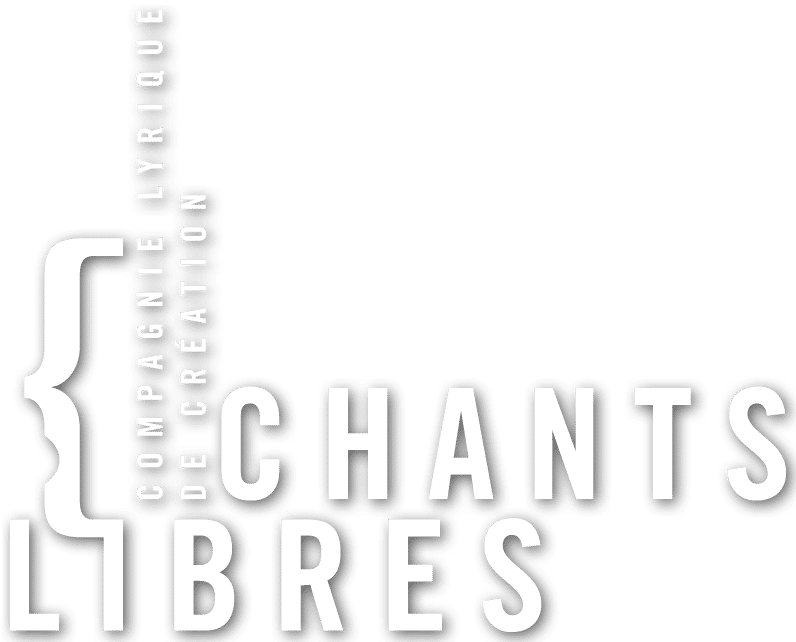How did you start collaborating on this opera project with Stefan Weisman?
American Atheist is our third opera together, after the 30-minute one-act opera, Fade (2008) and the full-length opera, The Scarlet Ibis (2015). Our collaboration is strong, and we naturally flow from one project to the next. After The Scarlet Ibis, we wanted to find a story that was equally intense, but more contemporary, perhaps also a bit controversial. Stefan and I are both attracted to high-stakes, life-and-death struggles, but also stories that have a meditative, philosophical dimension. We also both happen to be atheists, and the idea of going inside the mind of an atheist as she faces death appealed to us. Opera is ideal for depicting men and women of larger-than-life size—spiritually and intellectually. Big passion, big ideas, outrageous behaviour that challenges the concept of God, men, and any authority.
Tell us about the libretto of this opera.
At present (we’re still developing and writing the piece), the opera takes place in eight scenes that jump around in non-linear fashion, from the last days of World War II to 2001, when Madalyn’s bones were unearthed by police in Texas. It’s not a conventional “biopic” as in movies, but provides snapshots of Madalyn’s life, showing her at critical points in her evolution as a woman, an atheist leader, and finally, facing her killers. In general terms, each scene is related to a passage from a Requiem Mass. So certain scenes match up with parts of a typical mass: “Requiem Aeternum,” “Kyrie Eleison,” “Dies Irae,” and so forth.
How do you work with the composer?
Stefan and I regularly meet to discuss story, research, theatrical effects, musical ideas, anything that feeds the narrative and creative process. Once we have a solid idea of what happens in a given scene, I draft a few pages. Because brevity and pithiness is key to a good libretto, I try not to overwrite the scene. It can be very hard—especially with characters as forceful and loquacious as Madalyn talking to you! I write the scene using dialogue, longer solo speeches as arias, duets, chorus—anything that drives story and defines character. Stefan reads the scene, offers feedback and suggests cuts or revisions, and we go back and forth until we’re both satisfied. Then he goes into his wizard’s cave and writes beautiful music that, inevitably, suits the text and allows the scene to breathe and live.
What are the stakes for writing a libretto in contemporary opera?
In opera, music is king, but a king is nothing without a court. The libretto is key to providing structure for the music to do its work. In the best case, my libretto captures the composer’s imagination, inspires him or her to create excellent musical phrases and blends seamlessly into a fabric of music drama. I contribute words—which have inherent force and musicality in them—and those in turn become part of the greater music of the opera. A very simple phrase can resonate with great profundity and feeling, given the right music. By the same token, a complicated literary conceit can seem clunky if it doesn’t fit the opera or the music. In the opera world, there’s a pantheon of great librettists—Lorenzo Da Ponte, Metastasio, Hugo von Hofmannsthal, Arrigo Boito, and others—but rarely does anyone believe an outstanding libretto is the primary reason for an opera’s success. And yet, I believe a poor or shallow libretto hinders an opera from achieving greatness. I do think that American opera shares a lot of DNA with the American musical, in which words and music have more equal power. For me, the stakes are high, because so much new opera gets its world premiere, and then disappears from view. I want my operas to live and travel the world.
Your favourite instrument?
I love the clarinet for its intelligence and colourful agility. But I also admire the soulfulness of the bassoon. I suppose I favour the woodwinds.
Last favourite for a record, show, exhibition, series or film?
In terms of TV series, I enjoy dark genre shows – Godless, The Terror, and Ozark. The recent Netflix series Russian Doll was a weird, addictive diversion. At the Frick Collection in New York, I loved the retrospective of Renaissance portraits by Moroni. I’m reading Donna Tartt’s The Goldfinch slowly, savouring each beautifully wrought sentence.
More info about David Côté : https://www.davidcote.com/
An excerpt of American Atheist will be presented at Oper’Actuel – Works in progress 2019.
Two FREE performances:
Saturday, March 16, 8 p.m.
Sunday, March 17, 4 p.m.
Gesù-Centre de créativité
Infos – 514 861-4036
Facebook Event
